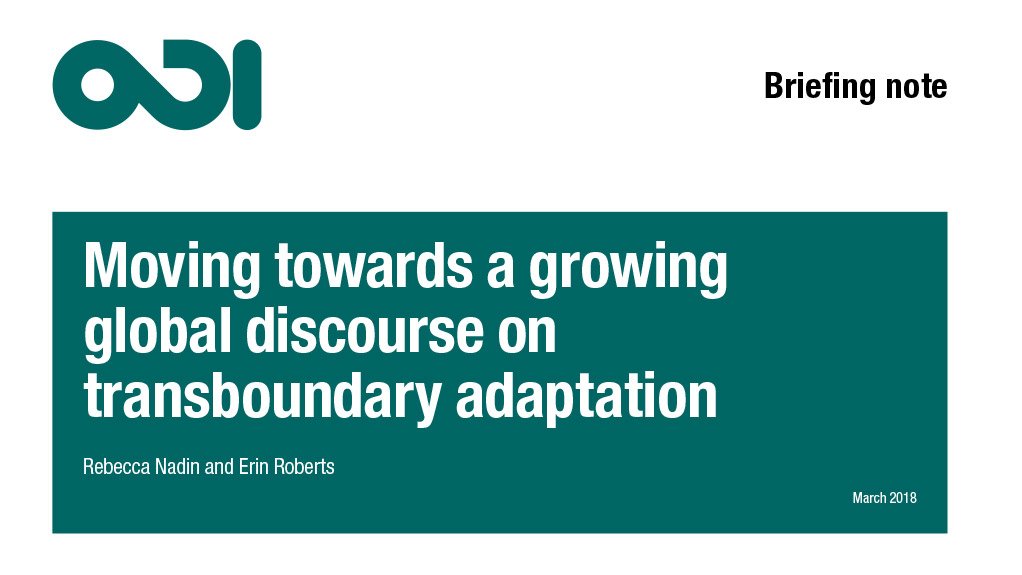- Moving towards a growing global discourse on transboundary adaptation0.31 MB
The scientific consensus is clear that climate change will alter the frequency, intensity, duration, timing and location of extreme weather and slow-onset events. It will also lead to creeping environmental changes, such as shifts in seasons or sea-level rise. Understandably, in response, adaptation measures have generally been focused on developing national, subnational and sector plans, with actions often taking place at community or local levels. Yet, it has long been understood that the effects of climate change are transboundary, crossing political borders and impacting shared resources.
Transboundary resource management is not a new concept, but there is a need to develop transboundary adaptation frameworks and response measures that build upon existing regulatory approaches in international environmental law, and to develop the work of intergovernmental organisations and regional advocacy organisations.
Regional cooperation is needed to manage shared ecosystems and consider the transboundary risk implications of National Adaptation Plans and Intended Nationally Determined Contributions. The need for transboundary adaptation and global cooperation on adaptation will be increasingly important, as the impacts of climate change span national borders. National adaptation actions can themselves generate transboundary risks.
This briefing note describes the current adaptation plans and strategies in place, including some, such as the Mekong River Commission, which address transboundary risks and the need to manage shared resources. It also highlights opportunities to enhance work on transboundary adaptation through existing mechanisms under the Rio Conventions, including UNCCD and UNFCCC through the Paris Committee for Capacity-Building and associated funds (the Global Environment Facility, the Land Degradation Neutrality Fund and the Adaptation Fund, among others).
This briefing note was prepared with support from The Rockefeller Foundation as part of ODI’s Resilience Scan initiative, and is an excerpt from Resilience Scan: April–June 2017. For the full text and references, please visit www.odi.org/publications/10960-resilience-scan-april-june-2017. The paper's findings and conclusions are those of the authors and do not necessarily reflect the positions or policies of The Rockefeller Foundation.
Paper by the Overseas Development Institute
EMAIL THIS ARTICLE SAVE THIS ARTICLE ARTICLE ENQUIRY
To subscribe email subscriptions@creamermedia.co.za or click here
To advertise email advertising@creamermedia.co.za or click here











